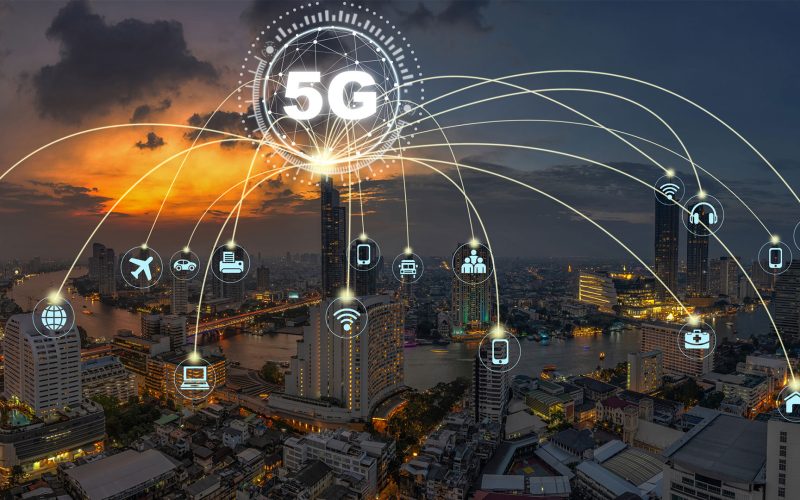Impact on Global Communication Networks

The advent of 5G technology is significantly enhancing global communication network efficiency and speed. With its advanced capabilities, 5G offers unparalleled data transmission rates, drastically reducing latency and enabling real-time communication. This level of efficiency is transformative, as it allows for more robust and reliable connections, which are essential for both personal and professional communication. The increased speed and reduced lag time are particularly beneficial for applications that require high bandwidth, such as video conferencing, online gaming, and virtual reality experiences. As a result, the overall user experience is vastly improved, leading to greater satisfaction and productivity.
Moreover, 5G technology enables seamless international connectivity and collaboration. By providing a more stable and faster connection, 5G facilitates smoother interactions between individuals and organizations across the globe. This is particularly important for multinational corporations and remote teams that rely on effective communication to collaborate on projects and share information. The ability to connect effortlessly, regardless of geographical location, fosters a more integrated and efficient global economy. This seamless connectivity also supports the growth of global markets, as businesses can expand their reach and operate more effectively on an international scale.
Enhancing IoT Capabilities
One of the most significant impacts of 5G technology is its ability to enable faster data transfer in IoT devices. The Internet of Things (IoT) relies heavily on the rapid and efficient exchange of data between devices. With 5G, the speed at which data can be transmitted is exponentially increased, allowing IoT devices to function more effectively. This is particularly important for applications that require real-time data processing, such as autonomous vehicles, smart homes, and industrial automation. Faster data transfer ensures that these devices can operate with greater precision and reliability, ultimately enhancing their overall performance.
In addition to faster data transfer, 5G also improves IoT device connectivity and reliability. The enhanced network capabilities of 5G provide a more stable and consistent connection for IoT devices, reducing the likelihood of interruptions and downtime. This is crucial for applications where continuous connectivity is essential, such as healthcare monitoring systems and critical infrastructure management. Improved reliability ensures that IoT devices can function optimally, providing users with a more dependable and efficient experience. As a result, the adoption of IoT technology is likely to increase, driving further innovation and development in this rapidly evolving field.
Advancements in Mobile Technology
5G technology is enabling unprecedented mobile data speeds and low latency, revolutionizing the way we use mobile devices. The increased data speeds offered by 5G allow users to download and upload large files in a fraction of the time it would take with previous generations of mobile networks. This is particularly beneficial for applications that require high bandwidth, such as streaming high-definition video, online gaming, and virtual reality experiences. The low latency of 5G also ensures that there is minimal delay in data transmission, providing a smoother and more responsive experience for users. These advancements in mobile technology are transforming the way we interact with our devices, making them more powerful and versatile tools for both personal and professional use.
Furthermore, 5G is transforming IoT with seamless, reliable connectivity. The enhanced capabilities of 5G provide a more stable and consistent connection for IoT devices, ensuring that they can operate with greater efficiency and reliability. This is particularly important for applications that require continuous connectivity, such as smart homes, autonomous vehicles, and industrial automation. The seamless connectivity offered by 5G ensures that IoT devices can function optimally, providing users with a more dependable and efficient experience. As a result, the adoption of IoT technology is likely to increase, driving further innovation and development in this rapidly evolving field.
Economic Implications of 5G

The introduction of 5G technology is accelerating digital transformation across industries. By providing faster and more reliable connectivity, 5G enables businesses to adopt new technologies and processes that can enhance their operations and improve efficiency. This is particularly important in industries such as manufacturing, healthcare, and logistics, where real-time data processing and communication are essential. The ability to leverage 5G technology allows businesses to optimize their operations, reduce costs, and improve overall productivity. As a result, the economic impact of 5G is significant, driving growth and innovation across various sectors.
Additionally, 5G is driving growth in smart city initiatives. The enhanced capabilities of 5G provide the foundation for the development of smart cities, where advanced technologies are used to improve the quality of life for residents. This includes applications such as smart traffic management, energy-efficient buildings, and enhanced public safety systems. By providing faster and more reliable connectivity, 5G enables these technologies to function more effectively, ultimately leading to more efficient and sustainable urban environments. The growth of smart city initiatives is expected to have a positive economic impact, as it drives investment and innovation in urban development and infrastructure.
Security Concerns and Solutions
One of the key advantages of 5G technology is its ability to enhance encryption, mitigating security concerns. The advanced encryption capabilities of 5G ensure that data transmitted over the network is protected from unauthorized access and cyber threats. This is particularly important in applications where sensitive information is being exchanged, such as financial transactions, healthcare records, and personal communications. By providing a higher level of security, 5G helps to build trust and confidence in the network, encouraging more widespread adoption of the technology.
Moreover, advanced 5G protocols address potential cybersecurity threats. The enhanced network architecture of 5G includes robust security measures designed to protect against a wide range of cyber threats, including malware, hacking, and data breaches. These protocols ensure that the network is more resilient and capable of detecting and responding to potential security incidents. By addressing these cybersecurity threats, 5G provides a more secure and reliable platform for users, ultimately enhancing the overall safety and integrity of the network. This focus on security is crucial for the successful adoption and implementation of 5G technology, as it ensures that users can trust the network to protect their data and privacy.










